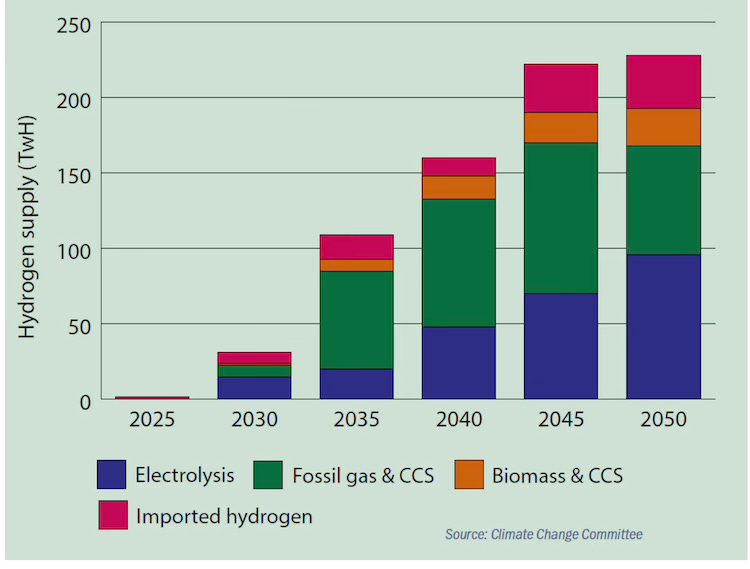Paying the price for net zero
The cost of doing nothing to combat climate change or not enough is horrendously high but are we ready to meet the bill for hitting the target?
European countries are reneging on their climate commitments and scaling back investment in the new green industrial deal. After January 20, when the second Trumpian dystopia begins, the White House will systematically shred the plans - and undermine the achievements - of Joe Biden's Inflation Reduction Act that promised up to $3trn in clean energy and technologies.
The new Starmer government in the UK has similarly watered down commitments made in opposition. But, in Scotland, the government has nothing to crow about after scaling back its own climate targets after the Climate Change Committee said the statutory 2030 goals (a 75% reduction in emissions on 1990 levels) "are no longer credible," adding: "There is no comprehensive strategy for Scotland to decarbonise towards Net Zero."
In Europe, as in the US, this reining back of green ambition has partly come in response to popular resistance, manifested in the rise of the Far Right, and powerful industrial/corporate lobbies. But perhaps a more telling reason is the sheer scale of the costs of the green transition allied to that of the change in individual and societal behaviours required. Let's focus first on cost.
Budget limits
The demands on the UK public purse are rising relentlessly. Forget for a moment health spending but think of defence: in 2023/24 we spent £54bn on defence, with £56.9bn estimated for the current year and virtually £60bn in 2025/26. This year we're spending 2.3% of GDP on defence but, given the stated Trump demands on the US's NATO partners, this is likely to rise to 3% as the alliance is set to adopt that as a target at its June summit in 2025. Plus the likelihood that Russia's war in Ukraine will be well into its fourth year, with European Nato members expected to contribute more in materiel and money. At today's prices hitting the 3% target would cost the Exchequer north of £75bn. (Health spending is just south of £300bn a year).
Are we prepared to spend that amount? And/or cut spending elsewhere (think welfare benefits)? As Olaf Scholz, the German chancellor said today (16 December) before losing a vote of confidence in the Bundestag: "Politics is not a game; the question is if and how we invest in our country." For me that's a paramount question and one that embraces the climate emergency: how much are we prepared to invest in the green, clean transition?
In reality, we're talking of sums way beyond the annual £28bn for the "Green Prosperity Fund" jettisoned by Labour earlier this year. This was the (unstated) key message of a recent eye-opening discussion among Fellows at the Royal Society of Edinburgh that sent me home wondering if Scotland and/or the UK is aware of the scale of the investment challenge, let alone ready and willing to fund it. Perhaps an older (often well-heeled) generation such as mine might begin to contemplate it but younger, hard-pressed families?
Behavioural change costs
We heard, for instance, that the switch to a (green) hydrogen economy by 2050- as propagated by Holyrood and others - will be comparable in scale to matching today's electricity supply while replacing all gas boilers needs twice that level of supply - and electrifying all transport, a laggard sector when it comes to the green transition, will require a doubling of current power output. If we switch to battery electric vehicles (rather than hydrogen-fuelled EVs) electricity generation would have to go up by a half.
So, we need to invest even more in renewable sources such as solar, wind (off- and on-shore), wave, tidal, geothermal, pumped hydro (like Cruachan) and opt for, say, small modular nuclear reactors, carbon capture & storage, even direct air capture for removing carbon. But all told, the energy expert leading the discussion said, that means installing new capacity in the next six years that is triple that built over the past two decades - and building extra transmission infrastructure in the next seven years that is five times greater in capacity than installed in the last 30 years.
The examples multiplied. But the key message was and is the need for a "fully costed roadmap" to achieve net zero - and a willingness to invest, say, as much as 10% of GDP and maybe far more than that, not the footling 1% politicos talk about, in getting there. (The cost of doing nothing could dwarf that, of course).
Are we up for it, let alone the lifestyle changes involved as well? We could at least have a national debate about this over the next 15 months in the run-up to the Scottish Parliament elections in May 2026...
(Thanks to Profs Peter Grant and Stuart Monro at Edinburgh Uni/RSE).






And the UK energy infrastructure has been starved of investment after/ because of privatisation - so it’s been sleepwalking into this for 20 years
You raise good points. It’s interesting linking the green transition to the boost in defence spending - weapons manufacture and use is probably pretty carbon intensive actually. But it seems weird to try to make them more climate friendly. On the green transition technological innovation is capable of changing the picture somewhat - for example solar panels are way cheaper to make and more powerful than they were a decade ago.